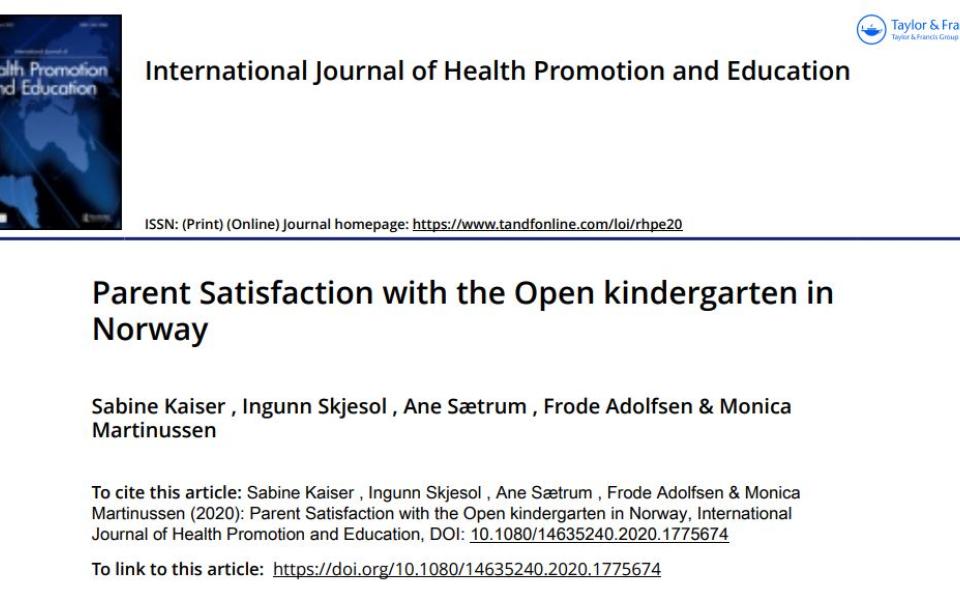The service is a pedagogical, health-promoting, and preventive low-threshold service directed towards families with small children - a social arena where parents and children are invited to informal meetings with other parents, children, and professionals.
The open kindergarten can facilitate various activities that meet the needs and wishes of parents when it comes to information, competence, and support related to parenting skills, child rearing and child development.
During opening hours, parents are invited to take part in group meals, social hour, playtime, sing-a-longs, walks, formative activities, theme courses, etc.
Ambition & goals
An essential aim for the model is to create an organizational structure that lowers the threshold to access family support services.
- A meeting point for children and parents
- Promoting the health and development of children
- Supporting and strengthening parents in their role as caregiver
- Stimulating positive interaction between parents and children
- Strengthening the social network of children and parents
- Helping children and parents to enjoy rewarding experiences together
- Contributing to early identification and early intervention of problems
- Initiating network building, e.g. contact between parents and other service providers as needed
Target group
- Parents with small children
- Vulnerable groups of parents with small children
- Minority groups of parents with small children
- New settlers in the municipality
Evaluation - lessons learned
Between 2015 and 2018, user satisfaction surveys were conducted over a 6-8-week period in open kindergartens in 11 municipalities in Norway. Every adult user who visited the open kindergarten during the survey period received a user survey. The users’ overall experiences with the open kindergarten were examined, as well as the identification of predictors for the overall satisfaction with the service.
The results show that users were very satisfied with the open kindergarten and found it beneficial for themselves and the child. Further analyses identified that the physical environment, the evaluation of the staff, and the benefits for the child and the caregivers, were significant predictors for the overall satisfaction of the users with the open kindergarten. The results suggest that the open kindergarten is an important arena that is highly valued by its users (Kaiser, Skjesol, Sætrum, Adolfsen & Martinussen, 2020).
Strengths
- The service promotes network building
- Lowers the threshold to access family support services
- Promotes parents’ sense of coping
- Promote integration processes – through interactions, the children and adults together, create a setting that renders integration processes possible. They develop language competence, become acquainted with different cultures and traditions, negotiate identity, and build social networks.
The open kindergartens are seen as attractive meeting points for both the minority and the majority population.
